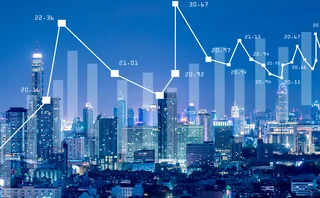
Profile: NYU’s Robert Engle on volatility, liquidity and systemic risk
The financial crisis has thrown up numerous opportunities to study the relationship between volatility and liquidity – from the freezing of structured credit markets to the 2010 flash crash – but Nobel laureate economist Robert Engle says this behaviour could be transformed by creating greater incentives for market-makers. By Laurie Carver

Outsiders might not believe it, but within the quantitative finance world there are styles as distinctive as that of any artist, musician or actor. Researchers with a more mathematical bent may favour very axiomatic approaches with high levels of abstraction; former physicists tend to invoke the methods of thermodynamics or quantum mechanics (see pages 59 and 60–66); computer scientists are concerned mainly with the construction of efficient algorithms.
But unlike many in the quantitative
Only users who have a paid subscription or are part of a corporate subscription are able to print or copy content.
To access these options, along with all other subscription benefits, please contact info@risk.net or view our subscription options here: http://subscriptions.risk.net/subscribe
You are currently unable to print this content. Please contact info@risk.net to find out more.
You are currently unable to copy this content. Please contact info@risk.net to find out more.
Copyright Infopro Digital Limited. All rights reserved.
You may share this content using our article tools. Printing this content is for the sole use of the Authorised User (named subscriber), as outlined in our terms and conditions - https://www.infopro-insight.com/terms-conditions/insight-subscriptions/
If you would like to purchase additional rights please email info@risk.net
Copyright Infopro Digital Limited. All rights reserved.
You may share this content using our article tools. Copying this content is for the sole use of the Authorised User (named subscriber), as outlined in our terms and conditions - https://www.infopro-insight.com/terms-conditions/insight-subscriptions/
If you would like to purchase additional rights please email info@risk.net
More on Market risk
Market risk solutions 2023: market and vendor landscape
A Chartis Research report that examines the structural shifts in enterprise risk systems and the impact of regulations, as well as the available technology.
The new rules of market risk management
Amid 2020’s Covid-19-related market turmoil – with volatility and value-at-risk (VAR) measures soaring – some of the world’s largest investment banks took advantage of the extraordinary conditions to notch up record trading revenues. In a recent Risk.net…
ETF strategies to manage market volatility
Money managers and institutional investors are re-evaluating investment strategies in the face of rapidly shifting market conditions. Consequently, selective genres of exchange-traded funds (ETFs) are seeing robust growth in assets. Hong Kong Exchanges…
FRTB spurs data mining push at StanChart
Bank building “single golden source” of trade data in a bid to lower NMRF burden
Asian privacy laws obstruct FRTB data pooling efforts
Bank scepticism and regulatory hurdles likely to inhibit cross-border information sharing
Seizing the opportunity of transformational change
Sponsored Q&A: CompatibL, Murex and Numerix
Doubts grow over US FRTB implementation
Fragmented roll-out would price European banks “out of the market”
Basel group shake-up has banks hoping for FRTB changes
Barger and Durand replaced by BoE's Nesbitt; banks want fresh look at P&L test
Most read
- Top 10 operational risks for 2024
- Top 10 op risks: third parties stoke cyber risk
- Japanese megabanks shun internal models as FRTB bites







